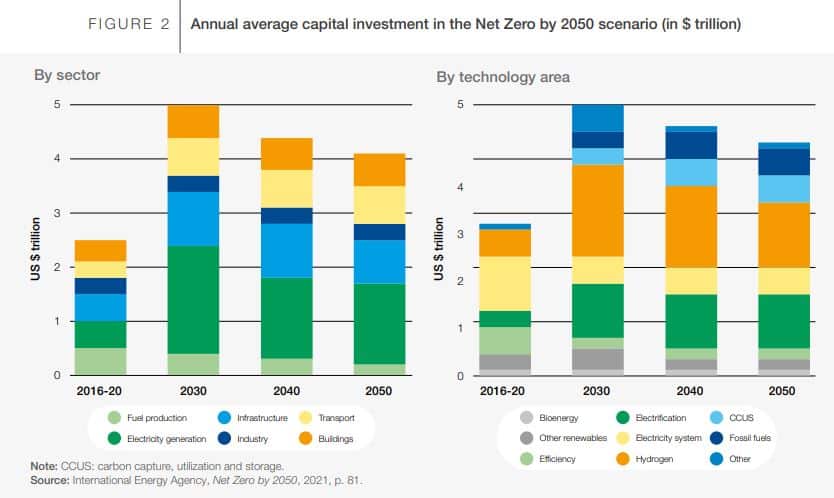The world’s largest private equity firm and asset manager Blackstone Inc.’s $7.1 billion credit fund will help pump capital into assets that propel energy transition such as electric vehicle factories and carbon capture facilities.
The company said that its recently closed Blackstone Green Private Credit Fund III was the biggest fund ever raised to financially support the energy transition.
As per the head of Blackstone Credit’s Sustainable Resources Group, Robert Horn, the transition impacts major sectors of the economy. This further led to more private capital requirements.
Funding the Energy Transition to Decarbonize the Global Economy
Innovative and revolutionary solutions are a must for both clean energy transition and industrial decarbonization.
According to the International Energy Association, technologies that are under development can reduce over 40% of carbon emissions in 2050. Some of these technological solutions include green hydrogen, sustainable aviation fuels (SAF), and carbon capture and storage (CCS).
But these green technologies are still in their early phases and remain uncompetitive with the current carbon-intensive alternatives. Trillions of dollars in capital investments are necessary to fund their R&D and scale them up to commercialization.
As seen below, the IEA estimates that the annual capital investment needed for net zero is over $4 trillion.

Though most of global carbon emissions are covered by government net zero commitments, the private sector still has a big hole to patch. And the world needs more than $100 trillion through 2050 to decarbonize the global economy as per IEA data.
Blackstone has committed over $15 billion in private investments that align with the broader energy transition. Its $7.1 Green Private Credit Fund III is part of the bigger $2 trillion private credit market. It’s managed by its Credit’s Sustainable Resources Platform.
Horn noted that there has been a rising demand for financing in the natural gas and renewable energy sectors. He added that incoming deals through their energy transition fund would involve sectors like carbon capture, LNG, and residential solar.
Carbon capture (CCS or CCUS), in particular, has taken the spotlight lately, both in terms of private and public investments.
Occidental subsidiary Oxy has acquired a carbon capture innovator startup for over $1 billion. The US government has also been betting huge in the sector and just recently revealed its $1.2 billion investment in two leading carbon capture companies, including Oxy.
Private Funding to Finance the Transition
Leveraging the rising demand for energy transition capital investments, Blackstone expects a $100 billion opportunity over the next decade. The private equity firm’s credit and insurance segment has $295 billion in assets under management.
Its Green Private Credit Fund III includes a wide investor base comprising “sovereign wealth funds, endowments, pensions, and insurance companies”.
As part of its energy transition funding commitment, Blackstone invested $400 million in Xpansiv last year. The asset manager finds Xpansiv, the largest ESG-commodity trader, to have a sweet spot for the energy transition.
Meanwhile, the S&P Global Commodity Insights Climate and Cleantech reported that private debt represented 22% of a certain energy transition project financing from September last year to June this year. This figure shows an expanding role of private funding or lending in energy transition financing.
The Inflation Reduction Act (IRA) and other government subsidies further amplify the need for private financing such as Blackstone’s fund. In a sense, the more subsidies or government grant programs made available, the more capital investments are needed. And Blackstone will help fill it up through its $7.1 billion private credit fund.

